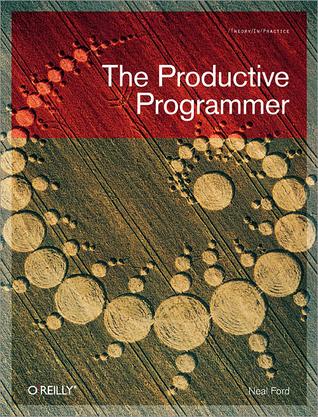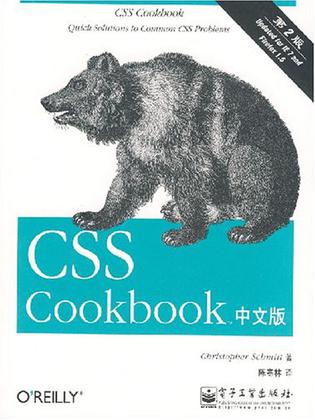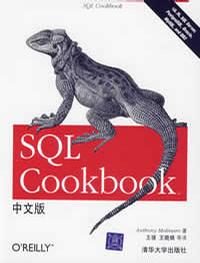-

Learning Perl, 5th Edition
Learning Perl, popularly known as "the Llama," is the book most programmers rely on to get started with Perl. The bestselling Perl tutorial since it was first published in 1993, this new fifth edition covers recent changes to the language up to Perl 5.10. This book reflects the combined experience of its authors, who have taught Perl at Stonehenge Consulting since 1991. Years of classroom testing and experience helped shape the book's pace and scope, and this edition is packed with exercises that let you practice the concepts while you follow the text. Topics include: * Perl data & variable types * Subroutines * File operations * Regular expressions * String manipulation * Lists & sorting * Process management * Smart matching * Using third party modules Perl is the language for people who want to get work done. Originally targeted to sysadmins for heavy-duty text processing, Perl is now a full-featured programming language suitable for almost any task on almost any platform-from short fixes on the command line to web applications, bioinformatics, finance, and much more. Other books may teach you to program in Perl, but this book will turn you into a Perl programmer. -

The Productive Programmer
Anyone who develops software for a living needs a proven way to produce it better, faster, and cheaper. The Productive Programmer offers critical timesaving and productivity tools that you can adopt right away, no matter what platform you use. Master developer Neal Ford not only offers advice on the mechanics of productivity-how to work smarter, spurn interruptions, get the most out your computer, and avoid repetition-he also details valuable practices that will help you elude common traps, improve your code, and become more valuable to your team. You'll learn to: * Write the test before you write the code * Manage the lifecycle of your objects fastidiously * Build only what you need now, not what you might need later * Apply ancient philosophies to software development * Question authority, rather than blindly adhere to standards * Make hard things easier and impossible things possible through meta-programming * Be sure all code within a method is at the same level of abstraction * Pick the right editor and assemble the best tools for the job This isn't theory, but the fruits of Ford's real-world experience as an Application Architect at the global IT consultancy ThoughtWorks. Whether you're a beginner or a pro with years of experience, you'll improve your work and your career with the simple and straightforward principles in The Productive Programmer. -

Learning the vi and Vim Editors
There's nothing that hard-core Unix and Linux users are more fanatical about than their text editor. Editors are the subject of adoration and worship, or of scorn and ridicule, depending upon whether the topic of discussion is your editor or someone else's. vi has been the standard editor for close to 30 years. Popular on Unix and Linux, it has a growing following on Windows systems, too. Most experienced system administrators cite vi as their tool of choice. And since 1986, this book has been the guide for vi. However, Unix systems are not what they were 30 years ago, and neither is this book. While retaining all the valuable features of previous editions, the 7th edition of Learning the vi and vim Editors has been expanded to include detailed information on vim, the leading vi clone. vim is the default version of vi on most Linux systems and on Mac OS X, and is available for many other operating systems too. With this guide, you learn text editing basics and advanced tools for both editors, such as multi-window editing, how to write both interactive macros and scripts to extend the editor, and power tools for programmers -- all in the easy-to-follow style that has made this book a classic. Learning the vi and vim Editors includes: A complete introduction to text editing with vi: * How to move around vi in a hurry * Beyond the basics, such as using buffers *vi's global search and replacement * Advanced editing, including customizing vi and executing Unix commands How to make full use of vim: * Extended text objects and more powerful regular expressions * Multi-window editing and powerful vim scripts * How to make full use of the GUI version of vim, called gvim *vim's enhancements for programmers, such as syntax highlighting, folding and extended tags Coverage of three other popular vi clones -- nvi, elvis, and vile -- is also included. You'll find several valuable appendixes, including an alphabetical quick reference to both vi and ex mode commands for regular vi and for vim, plus an updated appendix on vi and the Internet. Learning either vi or vim is required knowledge if you use Linux or Unix, and in either case, reading this book is essential. After reading this book, the choice of editor will be obvious for you too. -

CSS Cookbook中文版
《CSS三剑客之务实之剑:CSS Cookbook》(中文版)(第2版)全书共12章,前十章探讨排版、图片、页面元素、列表、链接、表单、表格及打印等方面的应用技巧,第11章介绍了一些用来解决浏览器兼容性的hack,最后一章列举了几个经典的CSS设计范例。附录提供了CSS属性索引速查表,CSS选择符、伪类、伪元素索引速查表等。 -

SQL Cookbook中文版
SQL 是计算机世界的语言,在用关系数据库开发报表时,将数据放入数据库以及从数据库中取出来,都需要SQL 的知识。很多人以一种马马虎虎的态度在使用SQL,根本没有意识到自己掌握着多么强大的武器。本书的目的是打开读者的视野,看看SQL 究竟能干什么,以改变这种状况。 本书是一本指南,其中包含了一系列SQL 的常用问题以及它们的解决方案,希望能对读者的日常工作有所帮助。本书将相关主题的小节归成章,如果读者遇到不能解决的SQL 新问题,可以先找到最可能适用的章,浏览其中各小节的标题,希望读者能从中找到解决方案,至少可以找到点灵感。 在这本书中有150 多个小节,这还仅仅是SQL 所能做的事情的一鳞半爪。解决日常编程问题的解决方案的数量仅取决于需要解决的问题的数量,本书没有覆盖所有问题,事实上也不可能覆盖;然而从中可以找到许多共同的问题及其解决方案,这些解决方案中用到许多技巧,读者学到这些技巧就可以将它们扩展并应用到本书不可能覆盖的其他新问题上。 毫无疑问,本书的目标是让读者看到,SQL 能够做多少一般认为是SQL 问题范围之外的事情。在过去的10 年间,SQL 走过了很长的路,许多过去只能用C 和JAVA等过程化语言解决的典型问题现在都可以直接用SQL 解决了,但是很多开发人员并没有意识到这一事实。本书就是要帮助大家认识到这一点。 现在,在对我刚才的话产生误解之前我先要申明:我是“如果没坏,就别去修它”这一教义的忠实信徒。例如,假如你有一个特定的业务问题要解决,目前只用SQL检索数据,而其他复杂的业务逻辑由其他语言完成,如果代码没有问题,而且性能也过得去,那么,谢天谢地。我绝对无意建议你扔掉以前的代码重新寻求完全SQL 的解决方案;我只是请你敞开思想,认识到1995 年编程用的SQL 跟2005 年用的不是一回事,今天的SQL 能做的事要多得多。 -

Masterminds of Programming
Description Masterminds of Programming features exclusive interviews with the creators of several historic and highly influential programming languages. Think along with Adin D. Falkoff (APL), James Gosling (Java), Bjarne Stroustrup (C++), and others whose vision and hard work helped shape the computer industry. You'll find advice you can apply to systems you're developing, even if you don't use the specific languages being discussed. Full Description Masterminds of Programming features exclusive interviews with the creators of several historic and highly influential programming languages. In this unique collection, you'll learn about the processes that led to specific design decisions, including the goals they had in mind, the trade-offs they had to make, and how their experiences have left an impact on programming today. Masterminds of Programming includes individual interviews with: * Adin D. Falkoff: APL * Thomas E. Kurtz: BASIC * Charles H. Moore: FORTH * Robin Milner: ML * Donald D. Chamberlin: SQL * Alfred Aho, Peter Weinberger, and Brian Kernighan: AWK * Charles Geschke and John Warnock: PostScript * Bjarne Stroustrup: C++ * Bertrand Meyer: Eiffel * Brad Cox and Tom Love: Objective-C * Larry Wall: Perl * Simon Peyton Jones, Paul Hudak, Philip Wadler, and John Hughes: Haskell * Guido van Rossum: Python * Luiz Henrique de Figueiredo and Roberto Ierusalimschy: Lua * James Gosling: Java * Grady Booch, Ivar Jacobson, and James Rumbaugh: UML * Anders Hejlsberg: Delphi inventor and lead developer of C# If you're interested in the people whose vision and hard work helped shape the computer industry, you'll find Masterminds of Programming fascinating.